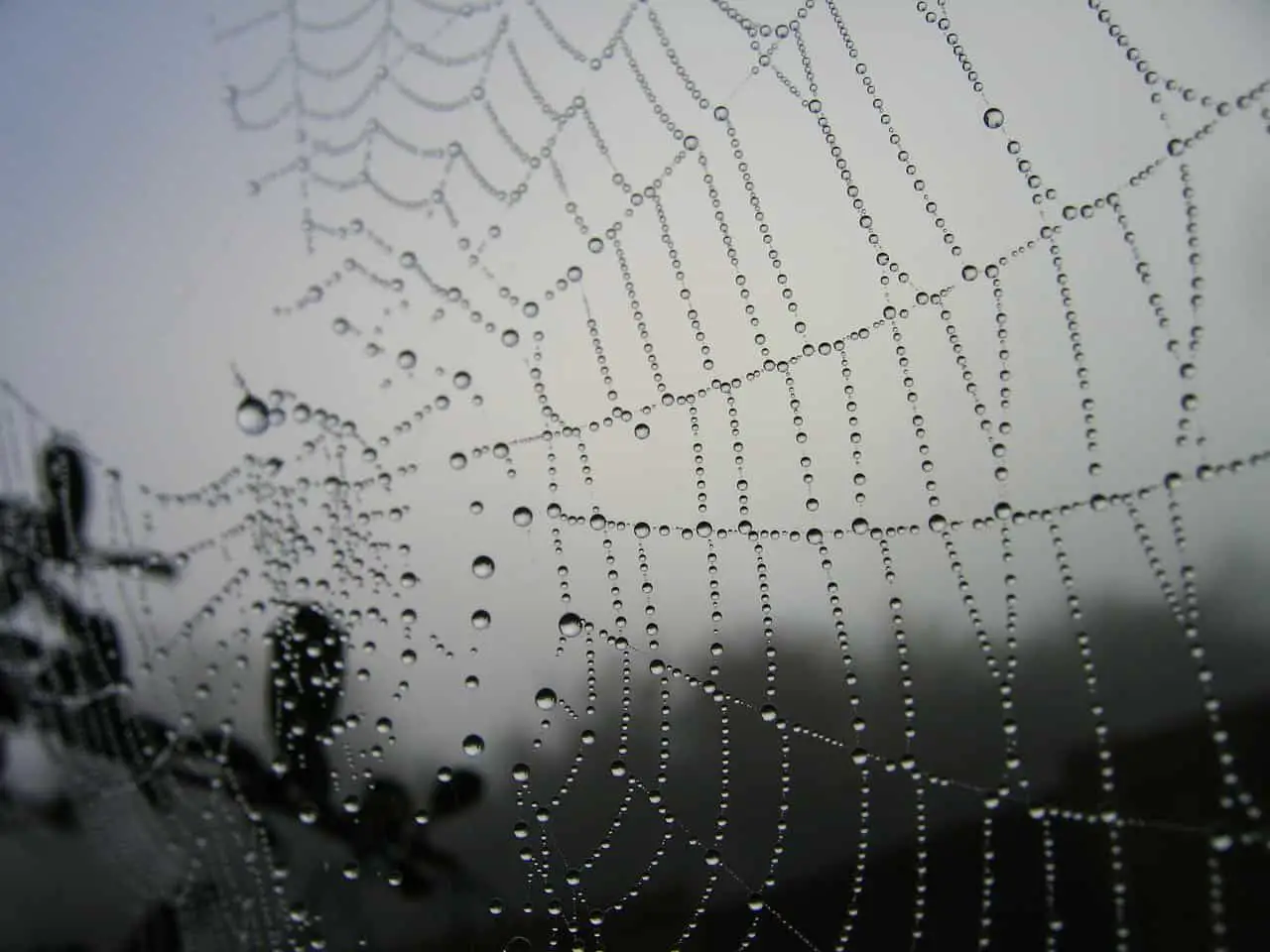If you have security cameras, you may find that spiders like to build pesky webs across the lenses—effectively disabling them. Or you may wake the morning after installing your cameras to find hours of motion-activated footage of bugs flying, crawling, or otherwise creeping in front of the sensor. Essentially, having insects near your security cameras can be a real pain. Don’t worry, there are lots of ways to discourage or prevent bugs from hanging around your cameras.
How do you keep bugs away from security cameras? There are two main methods of keeping bugs away from security cameras.
First is to discourage insects from wanting to be near the cameras; this can include covering the cameras in strong scents or turning off lights that may be attracting them.
Second is to prevent bugs from coming near the cameras altogether; a nearby fan prevents bugs flying near the cameras or greasing the camera prevents bugs from crawling on your security devices.
To truly understand how to ward off the bugs near your cameras, you need to understand what is attracting them in the first place. LED lights on the cameras attract nocturnal bugs to the cameras. Like moths swarming a porch light, any lights on your camera can attract unwanted guests. Infrared light, the light your camera uses to see in the dark, in particular, can attract nighttime flyers.
Spiders come to the cameras to trap and eat the nocturnal insects attracted by the lights on your camera. Those webs strung right in front of your camera lens are designed to make a tasty meal of the bugs flying around camera. Yes, your security camera has its own little ecosystem. Your goal is to disrupt that ecosystem and force the spiders and other insects to go back to doing whatever they were doing before your security camera started recording.
In the next few sections we’ll go over various ways you might attempt to keep your cameras bug-free. If you try any of these tips and find that they aren’t quite doing the job for you, try using two or more at once and stack their effects. Utilizing multiple methods may be more effective than trying to find just the right one.
Pesticides
Now you may be thinking, “This is obvious. There’s already a tried and true way of getting rid of insects—pesticides! I’ll poison the little pests and be done with them!” While this may initially seem like an easy solution, it may not be the slam dunk you’re hoping for.
If you’re using security cameras at home, you may not want to expose children, pets, or loved ones to potentially dangerous chemicals. Pesticides will kill bugs that come near while they’re potent but won’t prevent bugs from coming back once the poisons have worn off. You’ll need to keep reapplying for the effect to stay in affect. While this is true for a number of the items on this list, you don’t gain a lot in efficiency for what you lose in safety.
Beyond all that, pesticides are unlikely to work as effectively as you’d hope. Flying insects may not actually touch down on the cameras, and therefore not come into contact with the poison. Spiders are actually quite difficult to poison as they only come into contact with the pesticides on the bottoms of their spindly legs. Spiders won’t absorb anything through their skin and don’t groom themselves, thus making it unlikely that the toxins will have lethal affect.
Given that pesticides are an ineffective solution that has some serious risks, we’ll next take a look at some ways to discourage bugs from visiting the cameras altogether.
Disable IR/LED Lights
Most security cameras give you the option of disabling LED and IR lights on the camera. Doing this will remove the attractant for bugs. With the lights disabled, nocturnal insects will have no incentive to congregate around your cameras and spiders will have no reason to follow them for meals. If your camera allows these lights to be turned off, this may remove your problem entirely.
On the other hand, turning off your IR lights may have the small consequence of completely removing your camera’s night vision. As this is likely the purpose of the camera, this may not be an acceptable solution. However, by placing an external IR light or two and shining them on the area targeted by the camera, you can allow your camera to view the area in frame while also drawing the bugs away to a location that won’t be in the way of your lens.
Dryer Sheets/Flea Collar/Bug Spray
Dryer sheets, flea collars, and bug sprays are all reported to be effective ways of warding off bugs. Essentially, the idea with this one is to get something smelly that will keep the bugs away from your camera. A dryer sheet can be secured to the camera using a rubber band. The strong scent will keep the bugs from coming near the camera.
Flea collars don’t just work on fleas and they aren’t just for dogs. Loop one around the housing of your camera, and it’s likely to ward off spiders and other insects.
Bug spray applied to the body of the camera can keep flying insects away. Make sure to keep any sprays away from the lens of the camera. An easy way to do this is to use a paper towel to cover the lens while you spray bug repellant on the rest of the camera.
These methods can be very effective, but they require regular re-application. Most users say that you’ll need to reapply about every two weeks as the smells and chemicals wear off.
Home Remedies
Some people report that vinegar, lemon juice, or a homemade solution of white vinegar, chestnut oil, and peppermint have helped them deal with spider problems. Lavender and Eucalyptus are also natural insect repellants. These are low-cost solutions and may well be worth a shot if you’re on a budget. Plus, they’re non-toxic, non-lethal solutions that won’t put you or anyone else at risk.
Vinegar has the added benefit of being an excellent natural cleaning agent. You’ll keep your equipment clean and stay on top of your bug problem. Vinegar can be good for deterring bugs. However, for certain species of flies it may mimic the scent of rotting fruit and attract them in droves. Depending on your area and the local insect life, this may work beautifully or absolutely make things worse.
Any of these solutions could potentially react adversely with plastics so be sure to test on an isolated area before covering the entire camera, and also be sure to keep your lens free of any residue.
Spider Home
You may be able to incentivize your spiders to set up shop somewhere else by providing a more attractive piece of real estate. You’re looking for about a foot-wide, round structure with a roof of some kind to keep the web safe from the rain. You’re trying to make something more enticing than the snack bar outside your camera, so go ahead and pull out all the stops. Placing the structure somewhere near your camera that also attracts a lot of insects (like a garden or flower bed) will sweeten the deal.
If you’re successful, the spider that moves in will chase off any would-be competitors hoping to set something up near the camera again.
Fans
Literally blow your problems away by installing a fan behind your security camera. A fan will make it nearly impossible for flying insects to come near the cameras, and thus spiders won’t bother setting up their webs on the camera. This can be a very effective solution that won’t require any reapplication or maintenance. You will need to plug in and mount a fan with enough power to keep the bugs away.
Mounting a fan may be a bit of a project as there aren’t a lot of fans designed specifically for blowing bugs away from security cameras. You may be able to connect a cheap computer fan to your camera’s power connector, but you may also need something with a little more juice to really have the impact you’re looking for. You will also want to consider that a mounted fan with enough power to keep the bugs at bay may not look the most attractive and may make a lot of noise—not to mention the additional energy costs.
If you’ve got the money to spend, the know-how to put something together, and a location that is low visibility and/or low traffic—this may be the solution that requires the least time investment once it’s set up.
Lubricant
If you can make your camera slippery enough, spiders won’t be able to stick to it or attach their webs to it. Silicon or Teflon sprays work great, but petroleum jelly or Vaseline is cheaper and longer lasting. Apply liberally to the camera and any nearby walls or other surfaces to make life difficult on your eight-legged adversaries.
We’ve mentioned several times to be careful of your camera lens. This has never been more important than with greasy lubricants. Lubricants may be difficult to clean off the lens and could significantly distort the image captured by your camera.
Intrusion Detection
If all else fails and you simply can’t stop insects from occasionally tripping your motion-activated cameras, try switching your cameras from motion detection to intrusion detection. This limits the sensor to activating the camera for larger objects that stay in frame for a few seconds or longer. Intrusion detection should prevent a stray moth from activating the camera, but still activate if a person enters the cameras view.
As long as your camera supports this feature, you’ll be able to limit false alarms without compromising on security.
It may take some trial and error, but eventually you’ll find a solution that will keep the bugs back. You won’t have to worry about webs covering the view of your security camera or constant false-positives on the motion-detector from flying insects. You’ll have a crystal-clear view of your property day and night. You can rest easy knowing that if anybody tries bugging you and yours, you’ll see everything.

